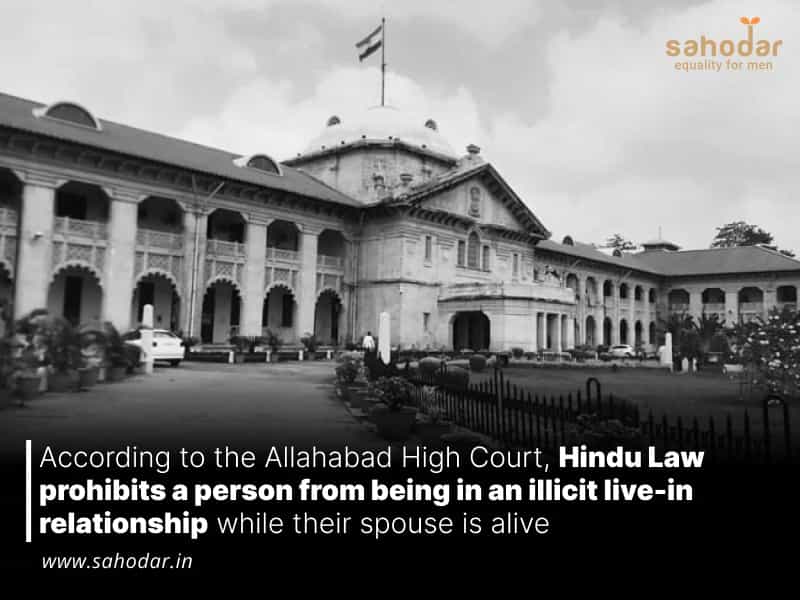Recently, the Allahabad High Court ruled that under Hindu Law, individuals with living spouses are prohibited from engaging in illicit live-in relationships that defy legal provisions. Justice Renu Agarwal’s bench made this observation while rejecting a protection plea from a couple in a live-in relationship who continued to cohabit without obtaining divorces from their respective spouses.
“The court could not protect such type of relationship which is not supported by law. If the court indulges in such type of cases and grants protection to illegal relationship, then it will create chaos in the society, hence such type of relationship cannot be supported by the Court,” the court observed as it emphasised that such relationship cannot be supported by the orders of the Court.
The Court addressed a writ petition submitted by Raksha (petitioner no. 1) and her live-in partner (petitioner no. 2), who sought police protection against respondent no. 4 (purported husband of petitioner no. 1) and his family members.
According to the petitioners, petitioner no. 1’s parents had arranged her marriage with respondent no. 4 when she was 13 years old and still a minor. They argued that this marriage was invalid, and currently, petitioner no. 1 was willingly engaged in a live-in relationship with petitioner no.
Opposing their request for protection, the Standing Counsel representing the state argued that since petitioner no. 1 is already married and hasn’t obtained a divorce, her relationship with petitioner no. 2 cannot be endorsed by the Court.
The Standing Counsel also cited a ruling from a Co-ordinate Bench of the High Court in the case of Suneeta And Another vs. State Of U P And 3 Others 2023 LiveLaw (AB) 204, wherein the Court had expressed disapproval of such actions with the following words:
“But no law abiding citizen who is already married under the Hindu Marriage Act can seek the protection of this Court for an illicit relationship, which is not within the purview of the social fabric of this country. The sanctity of marriage pre-supposes divorce. If she has any difference with her husband, she has first to move for getting separated from her spouse as per law applicable to the community if Hindu Law does not apply to her“
In light of these circumstances, the Court acknowledged that since petitioner no. 1 had not taken any steps to dissolve her marriage after reaching adulthood and remains legally married to respondent no. 4, she cannot engage in a relationship with another individual.
The Court emphasized its inability to condone such illegal behavior, stating that granting approval to such actions could imply the Court’s endorsement of illicit relationships. It underscored the potential harm to societal norms and expressed reluctance to indirectly endorse such misconduct by ordering police protection.
Consequently, the petition was dismissed, with the single judge clarifying that the ruling was not a condemnation of live-in relationships per se but rather of unlawful relationships.
In recent developments, the Allahabad High Court rejected a protection plea from a couple cohabiting without obtaining divorces from their spouses, imposing a fine of Rs. 2,000. The court emphasized that legitimizing such relationships through judicial support could disrupt societal harmony and erode our nation’s social fabric.
Last month, the Allahabad High Court declined a protection plea from a married woman and her live-in partner, highlighting that the Court cannot shield such “illegal relationships.” Justice Renu Agarwal also levied a fine of Rs. 2,000 on the petitioners, cautioning against the potential societal chaos that could arise from judicial protection of such unlawful liaisons.

